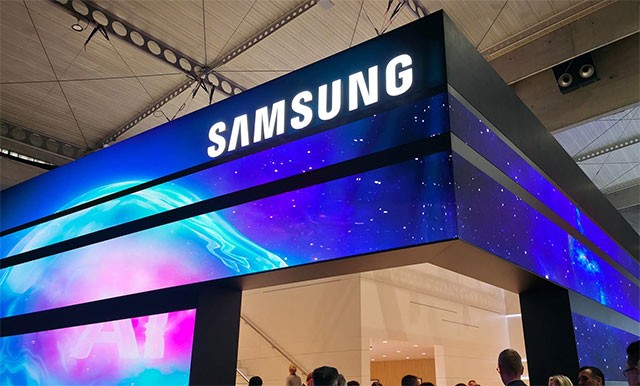2nm chip prices expected to increase sharply

TSMC reportedly began taking orders for 2nm wafers earlier this month, with prices estimated at up to $30,000/wafer.
The Apple A18 and Snapdragon 8 Elite chips used in the iPhone 16 and Galaxy S25 series flagships are both manufactured using the 3nm process. While most previous rumors suggested that Apple could be the first company to launch a phone with a 2nm chipset, a new report sheds light on Samsung's efforts to bring 2nm chips to the upcoming Galaxy S26 series before any of its competitors.
According to a new report from SamMobile, Samsung Foundry has made significant progress with the 2nm manufacturing process, paving the way for the launch of the Exynos 2600 chipset at 2nm.
The South Korean tech giant had previously dropped Exynos chips from the Galaxy S25 series due to performance issues, low power consumption, and the superiority of the latest Qualcomm chipsets. However, Exynos-branded chips could return with the Galaxy S26 devices, which are expected to be announced in early 2026.

Samsung Foundry has been struggling in 2024, and even Korean sources reported that the company has cut its investment in the division by more than half, allocating only 5 trillion won (about $3.5 billion) to Foundry operations by 2025. Furthermore, Samsung may consider outsourcing the production of Exynos chips to a third party, namely TSMC.
However, Samsung is not alone in this race. Renowned Apple analyst Ming-Chi Kuo has said that Apple will launch the iPhone 18 series with 2nm chips in the second half of 2026. According to Kuo, TSMC's testing capacity has reached a significant rate and is constantly improving.
Another big name in the industry, Qualcomm, is also catching up with Samsung and Apple. According to Digital Chat Station on Weibo, Qualcomm has started working on its next-generation flagship chipset, the Snapdragon 8 Elite Gen 3, which will be built on TSMC’s 2nm process and could launch in 2026 on flagship Android phones. If Samsung fails to launch the Exynos 2600 chipset on the 2nm process, it will almost certainly use Qualcomm’s 2nm chips for the Galaxy S26 series.
Struggling with Microsoft Teams Proxy Error? Discover proven Troubleshooting Microsoft Teams "Proxy Error" Settings Fix steps. Clear cache, adjust proxy settings, and get back to seamless calls in minutes with our expert guide.
Tired of Microsoft Teams OneDrive Error blocking file sync? Follow our step-by-step guide to solve Microsoft Teams "OneDrive Error" File Sync issues quickly. Proven fixes for smooth collaboration in Teams channels. Get your files syncing error-free today!
Tired of Microsoft Teams workflows and Power Automate errors halting your productivity? Get step-by-step solutions to common issues like authentication failures, timeouts, and flow errors. Fix them in minutes and automate effortlessly!
Facing Microsoft Teams "Download Error" on MacBook? Discover proven troubleshooting steps to resolve download failures quickly, from cache clears to reinstalls, and get back to smooth teamwork.
Tired of the frustrating Microsoft Teams "Where is Teams" Folder Error? Discover proven, step-by-step troubleshooting fixes to resolve it quickly and restore smooth teamwork. Latest methods included!
Frustrated by Microsoft Teams JavaScript Error on desktop app? Discover proven steps to fix it fast: clear cache, update, reset, and reinstall. Get back to seamless collaboration in minutes!
Struggling with Microsoft Teams "Guest Login" Error? Discover step-by-step fixes, from quick cache clears to admin settings, to resolve guest access issues fast and collaborate seamlessly. Updated with the latest tips!
Tired of the Microsoft Teams "For PC" download error blocking your work? Follow our proven, step-by-step guide to resolve it quickly and get Teams running smoothly on your PC today.
Struggling with Microsoft Teams "Windows 7" login error? Discover step-by-step fixes for this frustrating issue on Windows 10/11. Clear cache, edit registry, and more – get back to seamless collaboration today!
Tired of Microsoft Teams Error Code 0x80070005 blocking your meetings? Follow this 2026 guide with step-by-step fixes for access denied issues. Get Teams running smoothly in minutes!
Master the installation of the Microsoft Teams Add-in for Outlook 2026 effortlessly. Boost your productivity with seamless scheduling and meetings. Follow our proven, up-to-date steps for instant success!
Struggling with Microsoft Teams "License Error" 2026? Discover proven, step-by-step solutions to resolve it fast. Clear cache, check licenses, and get back to seamless collaboration—no IT help needed!
Whether youre in your 50s, 60s, or even 70s, its not too late to prioritize your health and put yourself first. Here are the best exercises for people 50 and older.
Struggling with Microsoft Teams Error Caa50024 on Windows 10/11? Follow our step-by-step fixes to resolve crashes and launch issues quickly. Latest proven solutions for seamless teamwork.
Stuck with Microsoft Teams login error AADSTS50011? Discover proven, step-by-step fixes to resolve the reply URL mismatch issue and log in seamlessly. No tech skills needed!














